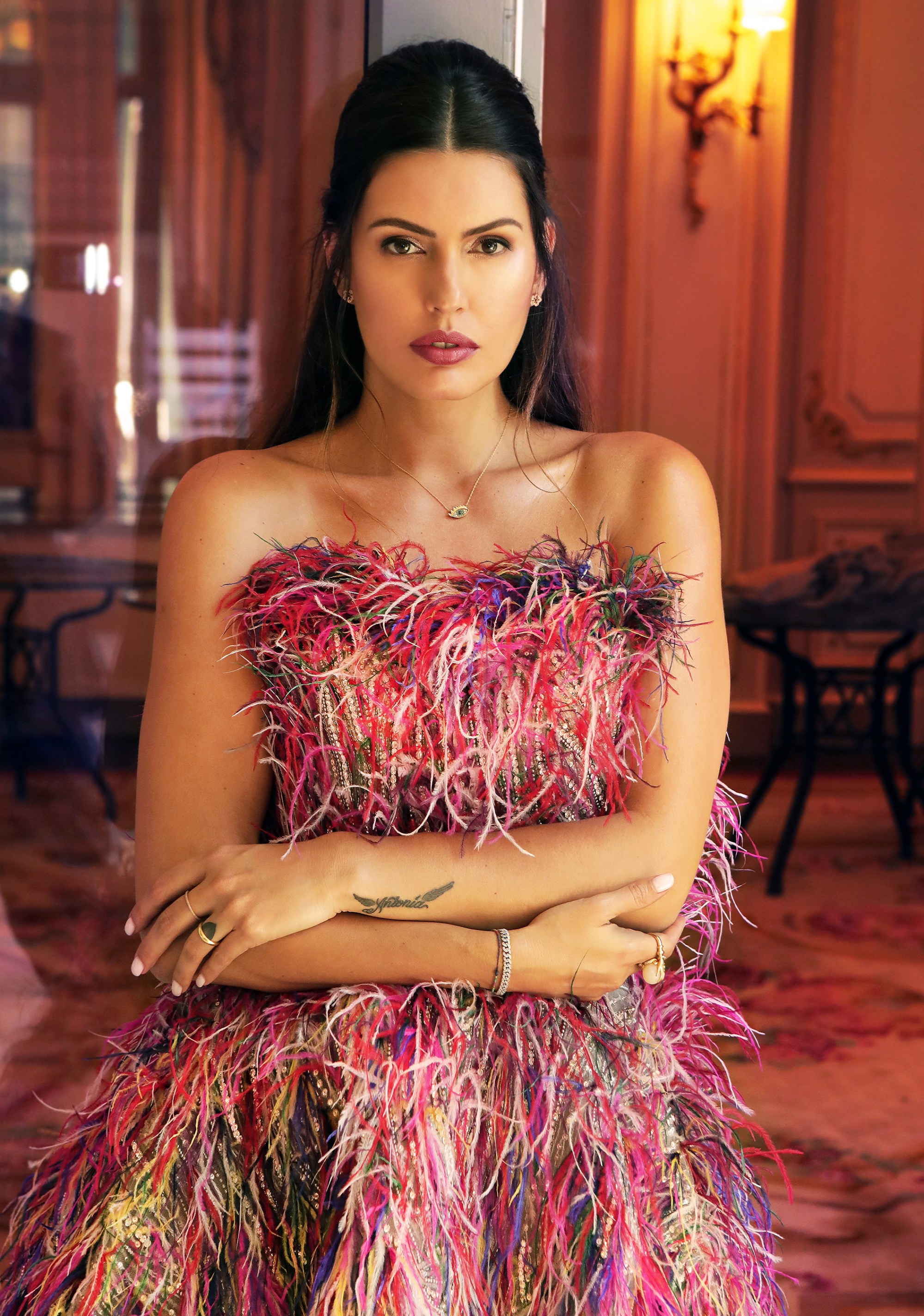
- Fashion
Deaf Supermodel-Businesswoman Brenda Costa: A Shining Inspiration to All
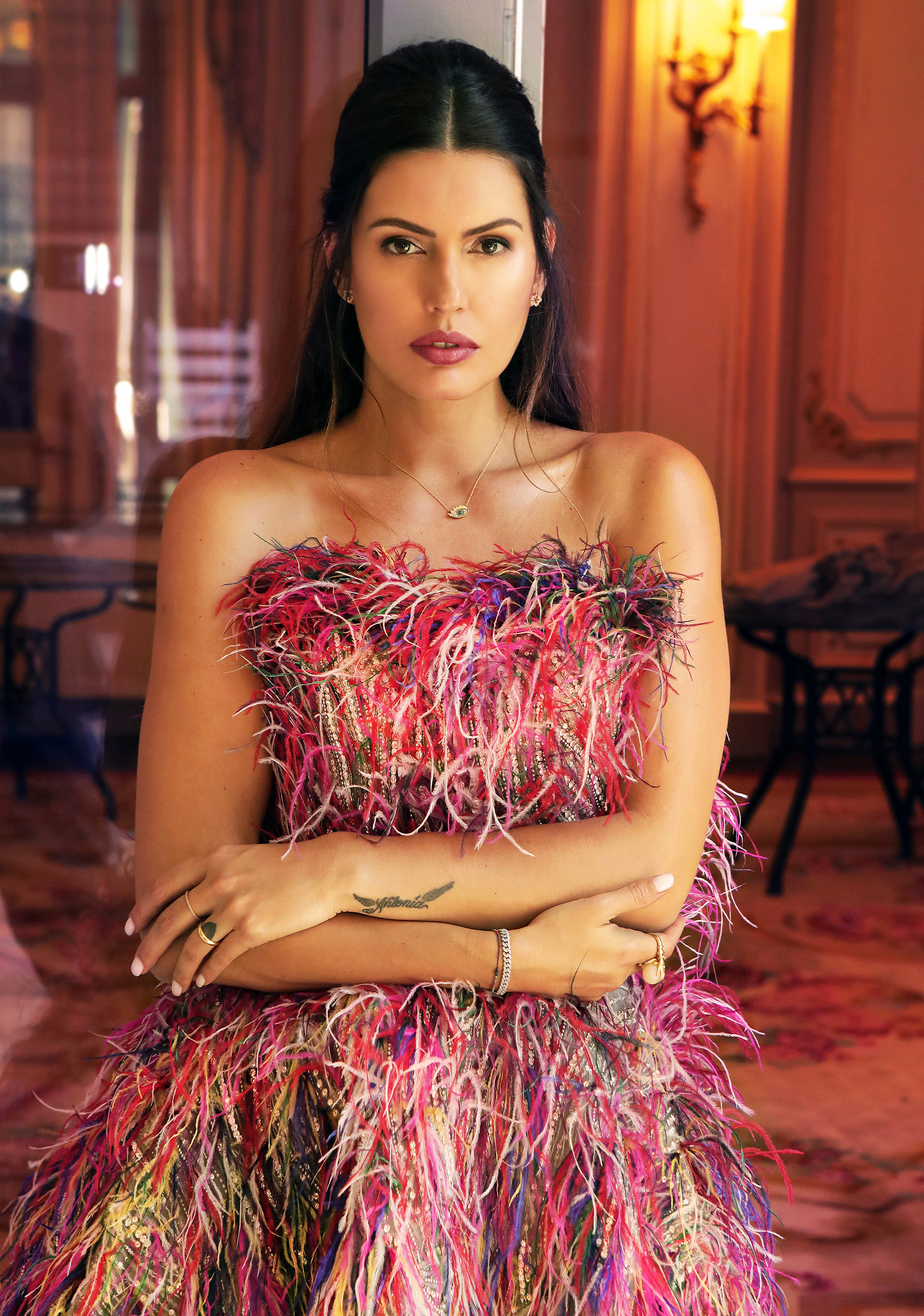
“There’s a variety of challenging factors in life and it hasn’t all been easy for me. However, I would say that I have always led a normal life, independent of my deafness.”
Brenda Costa, who was born deaf, is a successful supermodel and businesswoman who has graced most runways all over the world, worked as a model for many brands and is a writer and swimmer. She owns the Belle du Silence Agency which is a top modeling agency in Rio de Janeiro, Brazil whose mission is to find and empower people of all shapes and forms to pursue careers in fashion and media, and to promote diversity and inclusion.
Living by her words above, Costa, 39, has never stopped pursuing her dreams and her passions in life.
In her first book, “Belle Du Silence,” the Brazilian native talked about her career. She is now working on her second book about her childhood and all the challenges she encountered being deaf.
Costa started her modeling career at the age of 16 in Rio de Janeiro, Brazil.
In 2000, she moved to New York. Living in the Big Apple for six years, Costa worked for brands like Mac and Guess and graced the cover of many fashion magazines. In 2006, Costa had a cochlear implant, an electronic device to help her hear. That same year, she moved to Paris where she stayed for three years and worked for brands like Guerlain, L’Oréal, Wolford, and Valisere. Traveling around the world as a fashion supermodel, Costa worked with Valentino, Sergio Rossi, Calzedonia, La Perla, El Corte Inglés, Palmers, Harrods, and Marks & Spencer.
She is now based in London with her husband-businessman Karim Fayed, and two children – Antonia,12, and Gabriel, 7.
We interviewed Costa via email in March. Below are excerpts from our conversation.
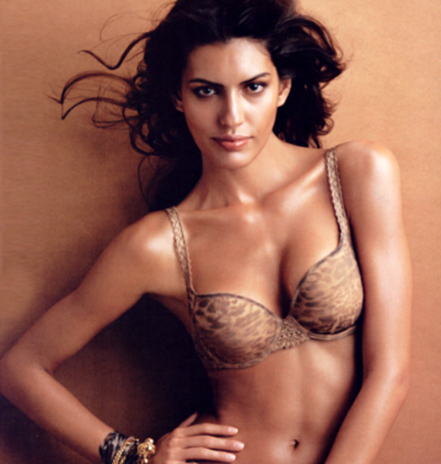
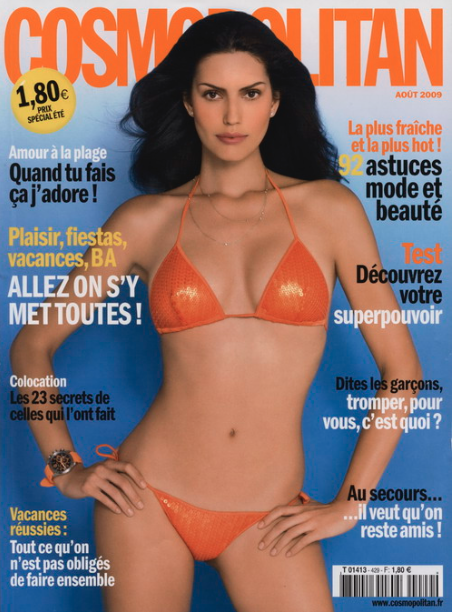
Congratulations on your amazing career and business. What were the challenges you experienced as a deaf person in both your career as a model and as a businesswoman? And how did you cope with them?
I would say that I have always led a normal life, independent of my deafness. My parents raised me by showing me what I was capable of, rather than where I might have limits. I always understood that people are different. Each one has their strengths. There are, of course, a lot of things I’m unable to do but I don’t think it’s necessarily because of my deafness… that’s life. We can’t do everything, can we?
One of my main challenges with being deaf is that I cannot hear people if they turn their back to me as I rely on lipreading. Most people aren’t aware of that, so I feel it is my job to educate them about my deafness and let them know that I need a few adaptations to follow their instructions, for example.
As a model, I have to be adaptable to a whole range of people – photographers, makeup artists, and stylists. A lot of these relationships are short-term and intense. You need to educate people on how to communicate effectively and clearly with you. It can take time for people to feel comfortable with this. The trick is to be assertive and show confidence. I think we are in a society that is waking up to the value of diversity in the workplace and starting to practice what it preaches.
Do you know if you are the only hearing-impaired model in the industry? Why do you think the industry should be more inclusive?
In recent years, “diversity” and “inclusion” have been words used a lot in the fashion community. Brands, magazines, and designers are now aware of their responsibility to represent a variety of cultures, abilities, and identities.
But we still have a lot to do to make the fashion world accessible to people of different racial groups, socioeconomic classes, and abilities. Fashion doesn’t just sell clothes: it sells self-esteem and personal identity. We have a duty to represent ALL people. Being a model, you are always “on show” in magazines and TV commercials. It’s so important that people see someone that they can relate to. I grew up without a role model in the industry but I was empowered by my parents to think I could achieve whatever I put my energy into. I want to be the role model I didn’t have in the industry. I am very proud to be able to represent deaf people in this profession. I hope that one day, all people with disabilities will be valued in our society.
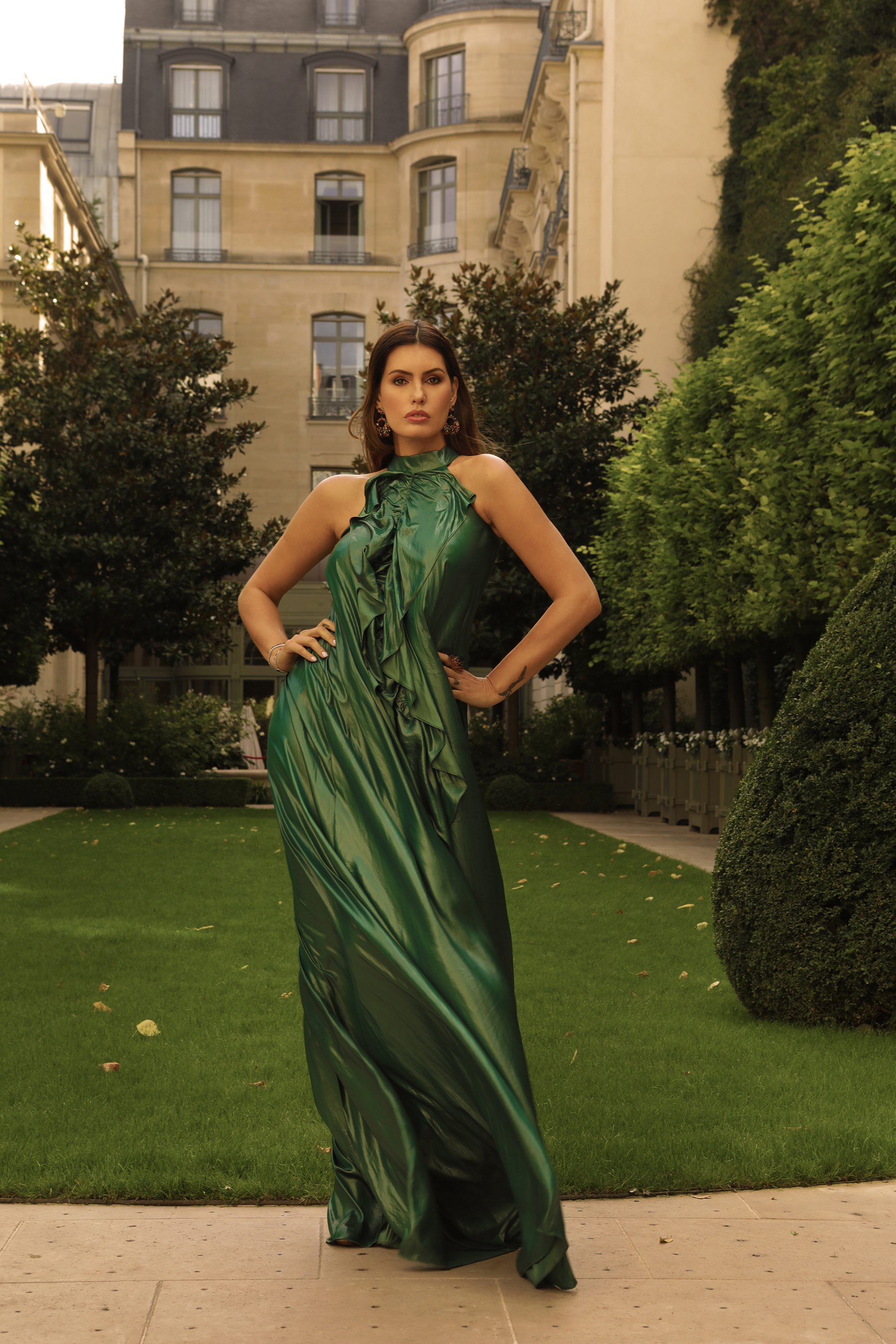
You are also a writer. You wrote your first book, “Belle Du Silence,” where you talk about your career. You are now working on your second book about your childhood and all the realities of being deaf. Why was it important for you to write your first book and now, your second book?
The idea for my first book came from a chat I had with some clients of an agency I was working for in Paris at the time. They constantly praised me for my achievements. I felt that more people needed to know about them. To me, I was just carrying on with my life and doing my job, but it felt like people were really interested in my journey. I also felt that it would help educate people and raise awareness of deafness. My second book is still in the making. The idea for it came from an experience my grandmother had with a mother of a deaf girl back in Brazil, where I come from. That mother was ashamed of her daughter due to her deafness.
My grandmother was so desperate to show this woman how well I have done in life and demonstrate, that given the right opportunities, a deaf person can succeed. The book is about overcoming all obstacles that life throws at you. I haven’t got a final title for it yet, but I am thinking of something like “Belle du Feu” as you need a fire in you to fight life, don’t you?
Tell us about your childhood and how was it growing up and going to school. What kind of a child were you?
I have very happy memories of my childhood and my school years. I was an extrovert, a talkative child. If you asked me how I, the only deaf child, felt among all the other hearing children, I would tell you that I felt exactly like them. We saw no differences between us. My deafness was never a barrier to our friendship. My friends and I had a lot in common and that was more important than our differences.
But I know this is not the reality for most deaf people. There are scientific studies showing that on average, deaf teenagers have fewer friends than hearing teenagers.
Today, I know that my mother talked a lot with the mothers of my friends and explained about my deafness. My friends’ mothers were probably talking to their daughters about acceptance and ways to communicate with me.
If you are reading this and you are the mother or father of a hearing child who has a deaf friend, be like my friends’ mothers. Educate your son or daughter about deafness, the different ways of communicating with deaf people, and help them adapt their communication in the best way to talk to their deaf friend.
If you are the parent of a deaf child, be like my mother. Show your son or daughter that being deaf doesn’t have to limit your social life. They can learn to overcome communication barriers and build strong friendships.
What made you decide to become a fashion model? Who or what was your inspiration?
My speech and language therapist, Valderez, was essential in my decision to become a model. She was more than a speech and language therapist; she was my life coach. She saw something in me beyond my deafness. She knew I was determined, hardworking, and enthusiastic about my future. She recalls that as a child I used to turn up to sessions dressed up as if I was on a catwalk. She was my inspiration.
Tell us more about your business, Belle Du Silence Agency, and what made you establish it.
Belle Du Silence Agency was a positive outcome of the pandemic lockdown. COVID made us all realize what is important to us in life. I had time to reflect on my career and realized that due to my age and family commitments, I no longer wanted to travel as much as I used to do in the past.
I also wanted my children to see that I am versatile, that I could adapt in the face of adversities, and have a sustainable career. Belle Du Silence Agency was created to follow my principles of equality, inclusion, and diversity. I am interested in developing other people – our main focus is on our models’ welfare, health, and happiness. Models can be treated like robots sometimes. At Belle Du Silence Agency, they are part of a lovely team of people who are committed to what we do.
You are also a swimmer and competed in the summer Olympics in 2016. Tell us about that experience and your love for swimming.
I started swimming when I was a child following the doctor’s recommendation as I had bronchitis and asthma. I enjoyed it so much and wanted to be a professional swimmer. I went to the summer Olympics when I was 16 years old.
But once I started modeling, I couldn’t juggle between both, and the body specifications of a model is quite different from a swimmer (for example, the broad shoulders). I now swim regularly for exercise and to de-stress.
What is your motto in life?
To be different is to be perfect! Everyone has their uniqueness, their beauty, their strength.

